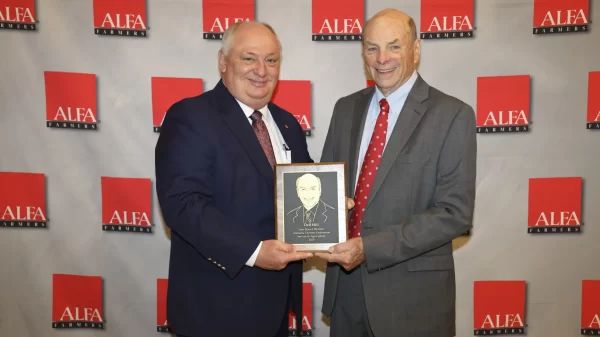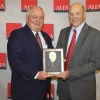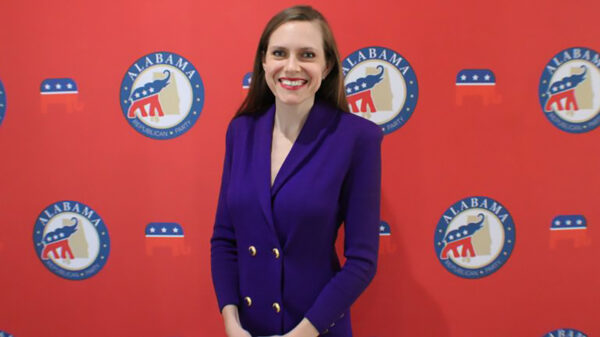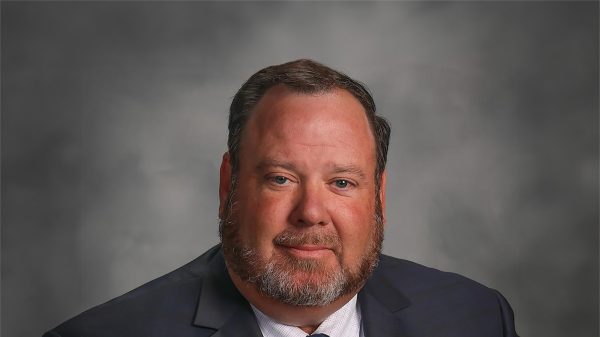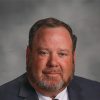Staff Report
Established in 1992, the Alabama Forever Wild Trust Fund has been considered by many to be one the most successful and popular legislations in more than 25 years.
Conversely, growing choirs of dissenters question the continuation of the program calling it a waste of money and a job-killer.
Reauthorization of the program will on the November 6, 2012, ballot.
Almost a year away and yet a small war has been growing between those who would preserve the program and those who would see its demise.
In 2009 it was reported that the Alabama Farmer Federation was against the renewal of the Forever Wild Trust Fund. There are even some who want to link the Farmer’s Federation with certain so-called Tea Party member who are promoting that the United Nations is involved in the Forever Wild program.
In an earlier version of this story we reported from a 2009 quote that contradicted the current position of The Alabama Farmer’s Federation concerning The Forever Wild Trust Fund.
*****
Earlier this year, the Alabama Farmers Federation raised concerns about Forever Wild purchasing productive farmland and engaging in long-term leases of property where the state does not hold timber or mineral rights. The organization, which was among the groups that supported creation of Forever Wild 20 years ago, recommended the Legislature form a study committee to evaluate the program’s accomplishments and set priorities for the future.
“Although the Legislature chose not to create the study committee, the public hearings led to subsequent discussions among farmers and the Department of Conservation and Natural Resources. Earlier this month, the Forever Wild board of directors approved a resolution that addresses many of the farmers’ concerns,” said Federation Public Relations and Communications Director Jeff Helms. “The resolution provides for creation of a recurring five-year, long-range plan for land preservation, increased public information efforts about Forever Wild properties, the posting of board minutes to a website and a statement emphasizing that productive farmland is a low priority for Forever Wild purchases.”
During its annual meeting this month, the Federation’s voting delegates approved official policy that states the organization will not take a position on the 2012 general election vote to reauthorize Forever Wild.
The Federation was accused of opposing Forever Wild in 2010 due to its support of a comprehensive conservation proposal that would have split funding among Forever Wild, a farmland preservation program and soil and water conservation practices.
“Although the Federation has endorsed a variety of conservation initiatives, it has not wavered in its support of the Forever Wild mission,” Helms said. “We are encouraged that the Forever Wild board of directors has taken steps to ensure the program remains true to its original purpose of preserving unique and environmentally sensitive lands for future generations.”
***
There are many among Tea Party activist and other groups who believe the program should not be continued for a variety of reasons.
In 1992, the Forever Wild Trust Fund was implemented to purchased lands for general recreation, nature preserves and additions to Wildlife Management Areas and state parks.
Groups such as the Alabama Audubon Society and Ducks Unlimited have been firm supporters of the program. Alabama Audubon Society, in a “call to action” statement to its member, wrote, “In the last 17 years, Forever Wild has protected almost 205,000 acres of pristine and important land in terms of protecting our ecological diversity, wildlife habitats, coastal areas, forests, and wetlands across the state, in addition to ensuring that we have clean drinking water, all without a single dollar of taxpayer money.”
However, other groups are seriously challenging the wisdom and need for this program.
The group Christian Conservatives (www.ccofal.org) ask the question, “In the middle of a recession, should Alabama Taxpayers spend $300 million to purchase more land for so-called conservation efforts, or should the funds be used to build more highways and create thousands of needed jobs in Alabama?”
Speaking at a GOP sponsored event in Talladega, Don Casey of Keepourrights.org and his partner Ken Freeman told the crowd of about 100, that Forever Wild was a United Nations plot to takeover the world. Casey and Freeman as well as other link Forever Wild to the UN and its’ Agenda 21.
According to the United Nations’ written documents, “Agenda 21, is a comprehensive plan of action to be taken globally, nationally and locally by organizations of the United Nations System, Governments, and Major Groups in every area in which human impacts on the environment.”
Talk show host Glenn Beck put forth a theory that UN Agenda 21 uses “Sustainable Development,” to mean “Centralized Control Over All Of Human Life On Planet Earth.”
On June 15, 2011 speaking on his now-defunct Fox News Glenn Beck show, Beck said, “Reading through the pages [of Agenda 21], it becomes clear ‘sustainable development’ is just a really nice way of saying ‘centralized control over all of human life on planet Earth.’”
Beyond seeking Sustainable Development, Agenda 21 includes broad goals that include combating poverty, changing consumption patterns, promoting health, and reducing private property ownership. There is even a plan for “social justice” that will redistribute wealth.
Beck’s statements have been interpreted by some within the Tea Party movement of Alabama to link the Forever Wild with Agenda 21.
Recently APR was given the opportunity to ask some questions of Greg Lein, Assistant Director Natural Heritage Section of the Alabama State Lands Division of Alabama Department of Conservation and Natural Resources
APR: How is Forever Wild funded?
Greg Lein: Forever Wild is funded from interest earned off the natural gas royalties that come from Alabama’s natural gas leases around Mobile Bay, as well as the Forever Wild car tag and occasional donations and federal grants. The primary funding from natural gas royalty payments are deposited in the Alabama Trust Fund, and under the Forever Wild law, 10% of the annual interest earned from the ATF is deposited to Forever Wild’s fund (not to exceed $15,000,000 annually). This is all described under the Forever Wild law itself.
The balance of the ATF’s interest is deposited to cities, counties, and the state’s General Fund. The State Treasurer’s website offers a very good explanation of this process (see http://www.treasury.state.al.us/Content/07ATFpage.htm ). As a consequence, Forever Wild is wisely funded, relying on the reinvestment of revenues from Alabama’s natural gas leases, and not taxes. We often refer to this as “conservation currency,” whereby one depleting natural resource (natural gas) is reinvested in a more permanent one (public land).
The other element of Forever Wild’s funding is that the law provides for 15% of the cost of Forever Wild purchases to be set aside in an interest bearing “stewardship fund” that provides for the perpetual maintenance costs on the land itself. The managers of the land are Conservation Department staff, who are self-funded by the conservation participants (anglers, visitors to state parks, boat registrants, and hunters). No General Fund money is involved, and no taxes are involved in the management of the land.
APR: What would you say are the program’s major accomplishments?
Greg Lein: Forever Wild’s accomplishments are many, but the legacy of public land is certainly the greatest. We also take a lot of pride in the program (known formally as the Forever Wild Land Trust) having operated openly and transparently for 19 years, and succeeding in passing every audit by the Public Examiners Office with no findings. Forever Wild has been responsive to the public’s nominations of potential lands, and worked well in partnering with elected officials and local governments to support regional objectives for securing recreational opportunities and protecting unique watersheds and wildlife habitats. This process creates an investment in Alabama’s public lands legacy, which in turn supports the state’s economy.
Forever Wild has purchased 165,807 acres of permanent land, and another 61,000 acres of land under a 90 plus year recreational lease. These new lands have offered new recreational opportunities for Alabama. They have also helped us keep pace with the loss of 143,000 acres of no-cost lease recreational lands since 1992.
APR: How much tourism is Forever Wild responsible for bringing into the state?
Greg Lein: While we don’t know the exact number associated with visitation to Forever Wild lands, car counters at locations like the Walls of Jericho Tract in Jackson County demonstrate a stable use of about 15,000 visitors annually to that tract’s hiking and horseback riding trails. Most of our Forever Wild lands are embedded within other conservation lands that are part of our State Parks and Wildlife Management Area system, making it difficult to distinguish the exact visitation to just the Forever Wild land. We do know that our State Park’s system hosted 3,000,000 guests during FY2009-2010, and that 625,000 hunting or fishing licenses (participation is actually higher, as youth under 16 and seniors over 65 are not required to purchase licenses, complicating the participant count) were purchased during FY2009-2010, demonstrating activity levels in the major areas of Alabama’s conservation system supported by Forever Wild.
A recent survey performed by the Alabama Tourism Office at the new Forever Wild Field Trial Area in Hale County documented that last year’s visitation for field trials, public fishing, youth hunts, and the physically disabled hunting sites created 35 jobs, generated approximately $189,000 in state taxes, and represented a total expenditure of over $1.8 Million. The survey reflected that most visitors were field trial participants (averaging two individuals per party) who were from out-of-state (76 percent), with the majority of them (93 percent) staying locally in the area surrounding Forever Wild’s Field Trial Area for 3 nights. On average they spent $77 per night on lodging, and $55 per person on food, shopping, and other expenditures. A new mountain biking system schedule to open in 2012 at Forever Wild’s Coldwater Mountain Tract is expected to generate an even greater impact to the Anniston/Oxford area of Calhoun County.
APR: What group would you say uses this preserved land the most?
Greg Lein: Our former Director often said that you can only preserve jellies and jams. Forever Wild is a program that secures public land for outdoor recreation and unique wildlife habitats. It is a dynamic and fluid process that actively involves the annual stewardship of trails, habitats, timber and other natural resource amenities. While we all rely on the clean air, magnificent scenery and clean water produced from Forever Wild lands, the most common group that benefits from these lands are the outdoor recreationists- members of the public who enjoy backpacking, biking, bird watching, canoeing, hiking, fishing, horseback riding, hunting, and general wildlife viewing.
APR: Is there data that shows the impact of Forever Wild as far as
income to the state?
Greg Lein: We do not have any specific studies or data that answers that question. However, when we focus on one well-studied form of outdoor recreation we know from regular tracking that annual hunting activities in Alabama are a $1.4 Billion economic impact (direct annual expenditures for hunting in Alabama account for $847 Million). While we know that every licensed hunter does not utilize public lands like Forever Wild, a recent national survey indicates that 39 percent of hunters in America rely on public land for some form of hunting (keep in mind that western states have vast areas of public land). Local data suggests that about 20 percent of our licensed hunters utilize public hunting land in Alabama. This difference in utilization likely reflects the lack of public hunting land in Alabama (AL ranked 10 out of 15 southereastern states polled regarding acres of state owned public hunting land). Nonetheless, the fact that 20 percent of Alabama’s licensed hunters are relying on 2.2 percent of the land area is astounding (the land area made available for public hunting in the state’s Wildlife Management Area system).
Couple those statistics with the utilization of the recreational lands by members of the public who travel to enjoy backpacking, biking, bird watching, canoeing, hiking, fishing, horseback riding, and general wildlife viewing, and we believe that these lands truly have a positive impact on Alabama’s economy.
APR: How does Forever Wild impact the quality of life enjoyed in Alabama?
Greg Lein: Forever Wild improves the public’s quality of life through the lands and recreational opportunities provided in conjunction with the program. People often think of this in terms of direct benefits such as recreational trails, fishing areas, hunting areas, and the protection of unique wildlife habitats. However, Forever Wild lands also provide numerous indirect benefits from these lands, such as clean air, clean water, watershed protection, scenic viewsheds, locations supporting conservation education programs, buffering for national defense missions, flood and storm buffer areas along waterways, habitat protection for nursery areas supporting coastal fisheries and seafood industries, as well as supporting Alabama’s economy through the numerous forms of recreational tourism. These all roll together as support for the public’s general quality of life.
APR: Why do you think we the voters of Alabama Should approve the re-authorization of the Forever Wild Trust Fund.
Greg Lein: Perhaps the greatest reason is the case many people present to us–why end something as successful as Forever Wild? The successes are well established, many of which have been highlighted in the above questions. However, one additional success that bears mentioning is the demonstration that broad interests can work together to protect Alabama’s unique natural heritage, while also supporting the state’s diverse economy. Instead of an endless stream of environmental problems and conservation failures, we have seen the opposite. Nineteen years of successful conservation, and the proof that Alabama’s government can provide what its citizens’ want most–sound fiscal policy and honoring the commitments made to our people. In this final year of Forever Wild’s funding for land acquisition, we are proud of having served the state in a manner that enhances the public’s quality of life while also enhancing the state’s economy. While these process has been but a small investment in Alabama’s natural heritage, Forever Wild has been a VERY important investment, and one that should be continued.
Lein and many hunters, fishers and outdoor enthusiast do not see the reason for any controversy surrounding Forever Wild, next November the voters will have their say.















































